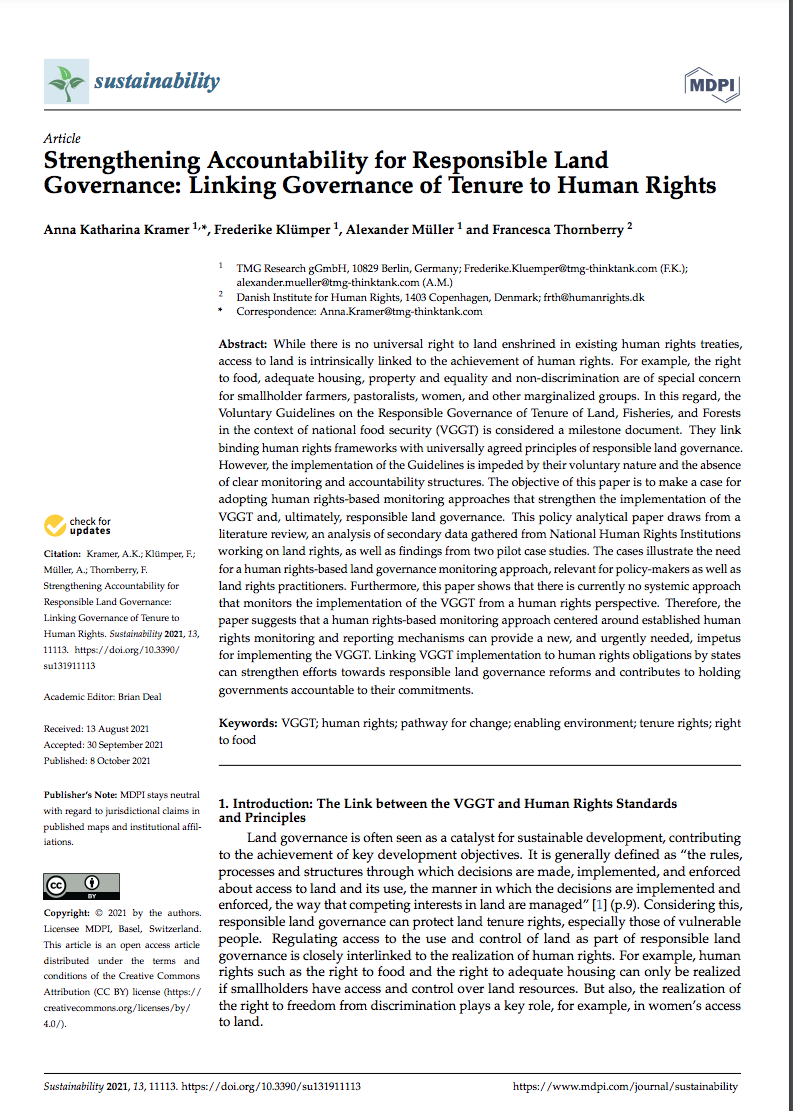Location
MDPI AG, a publisher of open-access scientific journals, was spun off from the Molecular Diversity Preservation International organization. It was formally registered by Shu-Kun Lin and Dietrich Rordorf in May 2010 in Basel, Switzerland, and maintains editorial offices in China, Spain and Serbia. MDPI relies primarily on article processing charges to cover the costs of editorial quality control and production of articles. Over 280 universities and institutes have joined the MDPI Institutional Open Access Program; authors from these organizations pay reduced article processing charges. MDPI is a member of the Committee on Publication Ethics, the International Association of Scientific, Technical, and Medical Publishers, and the Open Access Scholarly Publishers Association (OASPA).
Members:
Resources
Displaying 656 - 660 of 1524Spatio-Temporal Distribution and Driving Factors of Ecosystem Service Value in a Fragile Hilly Area of North China
Ecosystem services (ESs) are essential for human society, and maintaining harmony between ecosystems and humanity to mitigate ES degradation is the fundamental basis for achieving a sustainable state. However, due to the influence of land use and land cover (LULC) and other ecological-economic factors, the quality and capacity of ESs supporting human welfare continue to decline, and the specific processes involved in this decline are still unclear.
Valuing the Benefits and Enhancing Access: Community and Allotment Gardens in Urban Melbourne, Australia
The purpose of this study was to explore perceptions of the benefits and challenges experienced by community and allotment gardens utilising a broad theoretical analysis, pertaining to the case study of Melbourne, a city in Australia that until recently has been experiencing significant population growth and urban densification. The study involved qualitative, semi-structured interviews with 23 participants from six urban community and allotment gardens.
Modeling Cultural Keystone Species for the Conservation of Biocultural Diversity in the Afroalpine
Climate warming threatens the future sustainability of mountains, and tropical mountains are particularly threatened with loss of biodiversity and associated ecosystem services. Conservation biologists increasingly turn to habitat suitability models to guide the establishment and assessment of protected area networks to protect the highest number of species, yet this focus often neglects the values, attitudes, and beliefs of the people living around protected areas.
Strengthening Accountability for Responsible Land Governance: Linking Governance of Tenure to Human Rights
In a new paper, written with a colleague from the Danish Institute for Human Rights, TMG researchers Anna Kramer and Frederike Klümper, and TMG Managing Director Alexander Müller, make a case for adopting human rights-based monitoring approaches that strengthen the implementation of the Voluntary Guidelines on the Responsible Governance of Tenure of Land, Fisheries, and Forests (VGGT), and ultimately support responsible land governance.
Fit-for-Purpose Land Administration—Providing Secure Land Rights at Scale
This Special Issue provides an insight, collated from 26 articles, focusing on various aspects of the Fit-for-Purpose Land Administration (FFPLA) concept and its application. It presents some influential and innovative trends and recommendations for designing, implementing, maintaining and further developing FFP solutions for providing secure land rights at scale. The first group of 14 articles is published in Volume One and discusses various conceptual innovations related to spatial, legal and institutional aspects of FFPLA and its wider applications within land use management.





